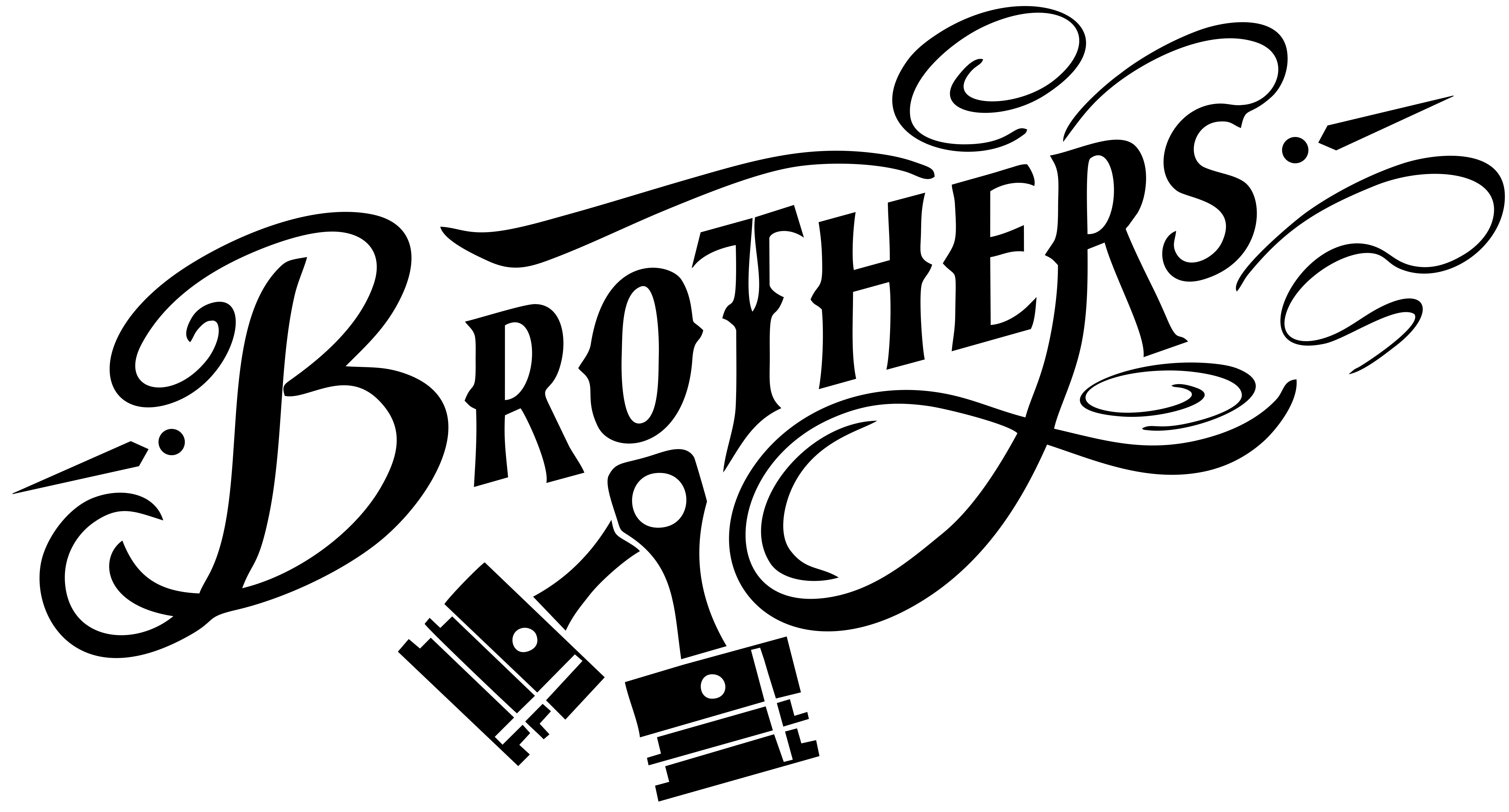Have you ever wondered why the phrase “brothers in arms” carries such weight, or why we instinctively trust those we consider “brothers”? The concept of brotherhood transcends mere biological ties; it delves into a realm of shared experiences, unwavering loyalty, and an unspoken understanding that binds individuals together. Exploring the symbolism of brotherly relationships reveals a fascinating tapestry of cultural, historical, and psychological significance.

Image: clipground.com
Throughout history, the archetype of the “brother” has played a pivotal role in shaping our understanding of human connection, loyalty, and shared purpose. From ancient myths and legends to modern-day literature and film, the symbolism of brotherhood resonates across diverse cultures and continues to inspire and challenge us.
Brotherhood in Mythology and Religion
The Ancient Greeks:
In Greek mythology, the concept of brotherhood is woven into the very fabric of their pantheon. The twin gods Castor and Pollux, renowned for their unwavering loyalty and fighting prowess, personify the ideal of brotherly bond. Their story speaks to the power of brotherhood to overcome adversity, protect one another, and even transcend death. Similarly, the story of Zeus and Poseidon, who despite their fierce rivalry, ultimately shared a common purpose in governing the realm, highlights the complexities of sibling relationships and the potential for both conflict and collaboration.
The Bible:
The Bible, a cornerstone of many Western religions, also features prominent examples of brotherhood. The story of Cain and Abel, the first recorded brothers in human history, serves as a cautionary tale about the dangers of envy and jealousy, while also emphasizing the profound consequences of choosing violence over love. In stark contrast, the relationship between David and Jonathan embodies the purest form of brotherhood—characterized by unconditional loyalty, mutual respect, and unwavering support, even in the face of adversity.

Image: insidemydream.com
Hinduism:
In Hinduism, the concept of brotherhood takes on a spiritual dimension. The brothers Rama and Lakshmana in the epic Ramayana exemplify selflessness, righteousness, and the importance of standing by one another through thick and thin. Their journey emphasizes the sacred duty of protecting those we love and the power of brotherly loyalty to overcome evil.
Brotherhood in Literature and Film
Beyond religious and mythological narratives, the symbolism of brotherhood continues to resonate in contemporary literature and film. In works like Shakespeare’s Hamlet, the complex relationship between Hamlet and his brother, Claudius, explores the themes of betrayal, revenge, and the destructive power of ambition—highlighting the darker aspects of the brotherhood dynamic.
Literary Examples:
In classic novels, like The Adventures of Huckleberry Finn by Mark Twain, the companionship between Huckleberry and Jim, a runaway slave, transcends societal norms and underscores the importance of loyalty and compassion above all else. Their journey together showcases the unwavering bond that can develop between individuals who share a common goal and who believe in each other’s worth.
Film Examples:
Modern films, such as the Lord of the Rings trilogy, utilize the imagery of brotherhood to depict the power of unity and sacrifice in the face of overwhelming odds. The fellowship formed between Frodo Baggins and his companions underscores the importance of shared purpose, trust, and the ability to rely on one another in moments of despair.
Brotherhood in Real Life
The symbolism of brotherhood extends beyond fictional narratives and mythical tales. It is a phenomenon that permeates real-life relationships and communities, shaping our interactions and influencing our choices.
Military Brotherhood:
The term “brothers in arms” is not just a poetic expression. Military brotherhood is a powerful force that binds soldiers together, fostering a strong sense of camaraderie, loyalty, and shared sacrifice. The shared experiences of combat, the reliance on one another for survival, and the unwavering commitment to protecting each other create an unbreakable bond that transcends the individual and creates a collective identity.
Fraternities and Sororities:
Fraternities and sororities, while often criticized for their exclusive nature, are based on the idea of creating a sense of brotherhood and sisterhood within their communities. They offer a sense of belonging, support, and shared values that can be vital, especially for young adults transitioning into adulthood. However, it is crucial to address the potential downsides of these organizations, including hazing and elitism, and to promote inclusive and respectful environments where the values of brotherhood can be fostered ethically.
Community and Social Movements:
The concept of brotherhood can also be seen in social movements and communities united by a shared cause. The civil rights movement, for example, drew strength from the understanding that the fight for equality was a collective effort, requiring the unwavering support of all those who believed in a more just world. Similarly, movements advocating for social justice and environmental protection often embrace the symbolism of brotherhood, recognizing that lasting change requires collaboration, shared responsibility, and an unwavering commitment to a common goal.
Brother Symbolism
The Value of Brotherhood
The symbolism of brotherhood reminds us that human connection is essential to our well-being and our journey through life. It fosters a sense of community, belonging, and purpose, enabling us to overcome adversity, support one another, and strive for a better future. However, it is important to recognize that the concept of brotherhood can also be manipulated and exploited, particularly in situations where power dynamics are imbalanced. Ultimately, the true measure of brotherhood lies in promoting understanding, empathy, and respect for every individual, regardless of their background or beliefs.
As we navigate the complexities of life, embracing the values of brotherhood—loyalty, honesty, compassion, and shared purpose—can guide us toward a more meaningful and fulfilling existence. May we all strive to cultivate these qualities in our own relationships, creating a more connected and compassionate world for generations to come.





